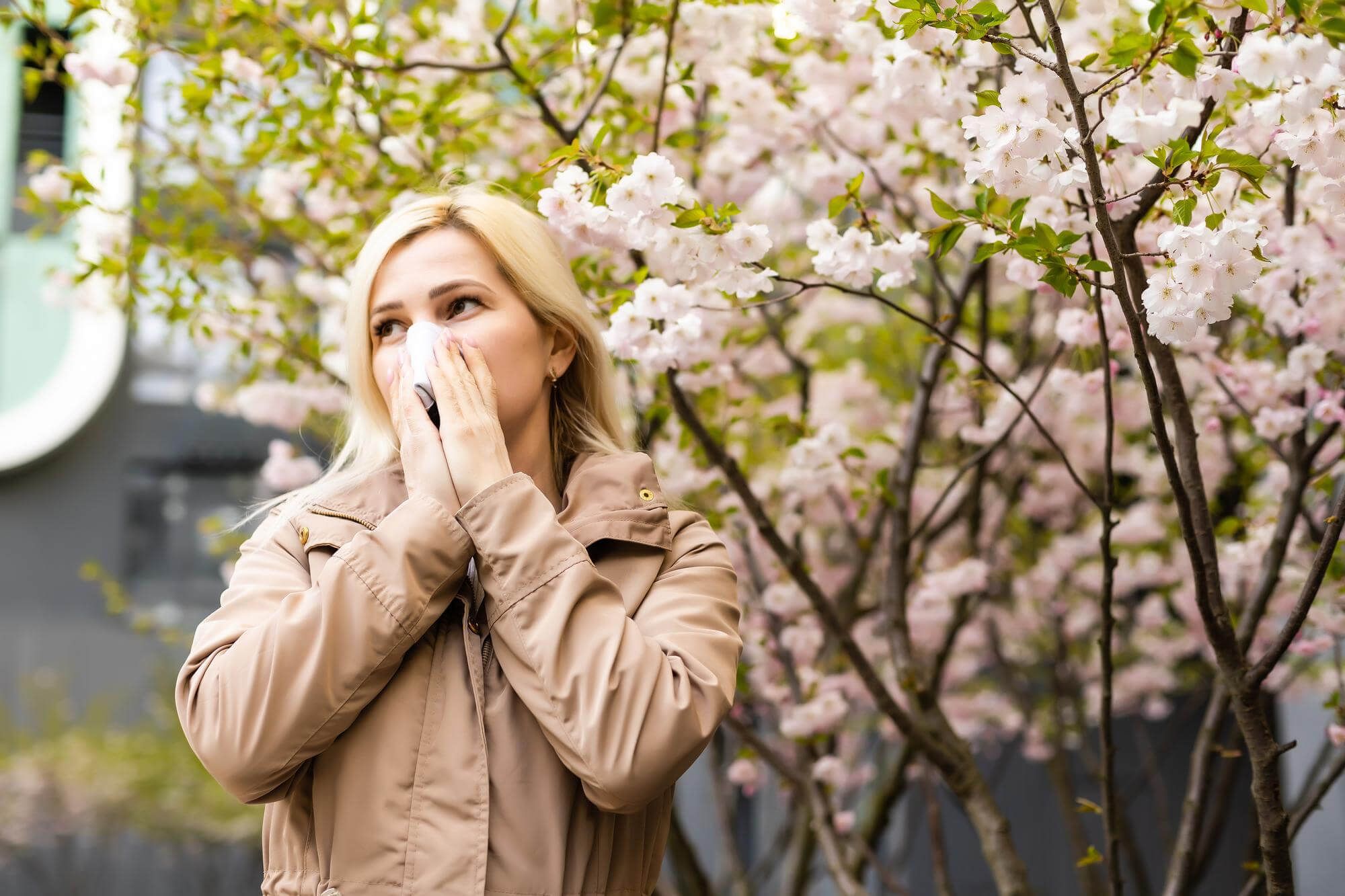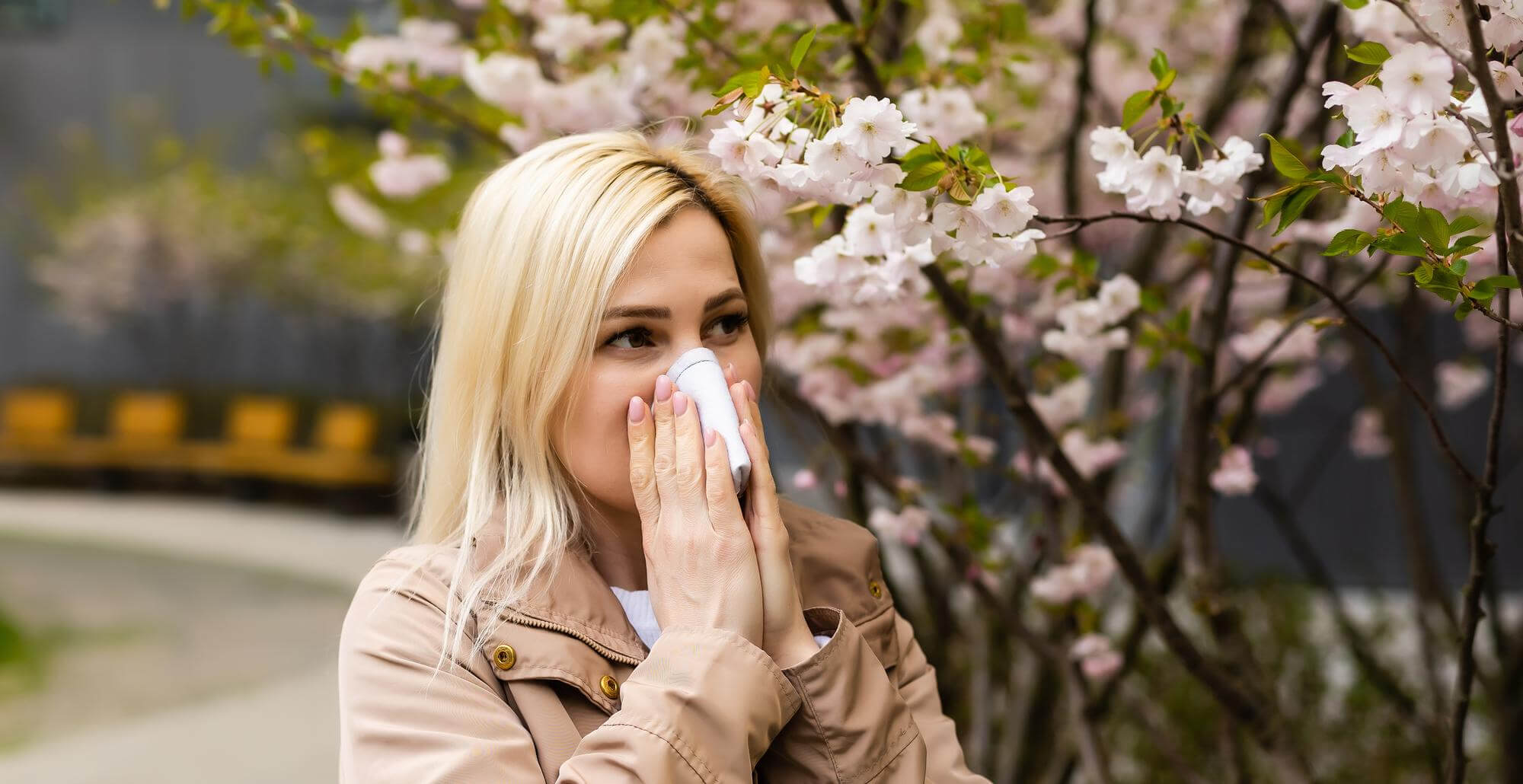Common symptoms of spring allergies and when medical help is needed


Viktor Levchenko
Spring allergy is a common condition that affects many people every year. In April, when nature awakens, many begin to suffer from various allergy symptoms. In this article, an experienced allergist will talk about the main aspects of spring allergies, what allergies can occur in April, how to prepare for spring allergies, and what to pay attention to.
What is spring allergy?
Spring allergy is an immune system reaction to various allergens that appear with the arrival of spring. Among the causes of such a reaction, one can name an allergy to spring sun, pollen, mold, and even pets.
Causes of spring allergies
The main factors that trigger spring allergies are plant pollen, dust, mold, and mites. In addition, the sun's rays become more active in the spring, which can also cause allergic reactions. It is also important to consider the individual characteristics of each person's body, as some people are more susceptible to allergies than others.
Spring allergy symptoms

Spring allergy symptoms can be diverse: sneezing, itching and tearing of the eyes, runny nose, itching in the nose, skin rashes, and even shortness of breath. In some cases, allergies can manifest as headaches and fatigue.
How to distinguish allergy from a cold?
Often the symptoms of allergies are similar to the manifestations of a cold, but there are several differences. Unlike a cold, allergies usually do not accompany fever and general malaise. In addition, allergy symptoms can persist for a long time, while a cold usually lasts for one to two weeks.
Types of allergens in spring
- In April, many plants begin to bloom, and a large amount of pollen appears in the air, which becomes the cause of allergies for many people. Typically, the most allergenic pollens are from trees, shrubs, and grasses.
- In the spring, the humidity level in the air increases, which contributes to the proliferation of dust mites and mold. These allergens can also cause allergic reactions in sensitive individuals.
- Some indoor plants can be sources of allergens, especially if they bloom in the spring. It is important to take care of the plants and regularly treat them for pests and fungal diseases.
Diagnosis of spring allergies
If you suspect that you have developed spring allergies, you should consult an allergist. The specialist will conduct an examination and collect medical history to determine possible causes of the allergy and prescribe further testing.
To accurately diagnose spring allergies, laboratory tests may be required, such as blood tests or skin tests. These methods allow specific allergens to be identified and an individualized treatment plan to be developed.
Treatment of spring allergies

Treatment of spring allergies involves eliminating contact with allergens, relieving symptoms, and preventing exacerbations. It is important to follow the doctor's recommendations and properly comply with all prescriptions.
The doctor may prescribe antihistamines (Cetrin, Zyrtec, Erius) to relieve allergy symptoms such as itching, tearing, and runny nose.
In some cases, hormonal ointments or drops (Advantan, Elocom, Allergoftal, Opatanol) may be required to eliminate skin manifestations of allergies.
In addition to medication therapy, alternative treatment methods such as herbal medicine, homeopathy, or acupuncture may be recommended.
Prevention of spring allergies
- To prevent the development of spring allergies, it is important to avoid contact with allergens: close windows during plant blooming, frequently ventilate living spaces, and conduct damp cleaning. It is also recommended to use air purifiers and allergen protectors for bedding.
- In some cases, a doctor may recommend immunotherapy, which involves gradually introducing allergens into the body to reduce sensitivity to them. This helps to reduce allergy symptoms and improve quality of life.
- Maintaining a healthy lifestyle also contributes to strengthening the immune system and preventing the development of allergies. Try to monitor your diet, consume enough vitamins and minerals, engage in physical exercise, and avoid stress.
Spring allergies are a common phenomenon that many people face. However, by taking precautions, preparing for spring allergies properly, and seeking timely medical attention, you can significantly improve your quality of life and avoid unpleasant symptoms. Do not forget to take care of your health and listen to your body's signals.
New materials
Popular Articles
We recommend reading
Contact us in the Contact Us section to ask questions, offer ideas, or for more information about our allergy resource.
Our articles are your trusted source of allergy knowledge. Learn how to make life with allergic reactions easier on our specialized portal.
©
Lechenie-Allergii.com. All rights reserved.
© Lechenie-Allergii.com. All rights reserved.
The information on this site is for informational purposes only and is not a substitute for professional medical advice. We recommend consulting with qualified medical professionals for accurate information and advice.
 English
English  Українська
Українська  Русский
Русский 









